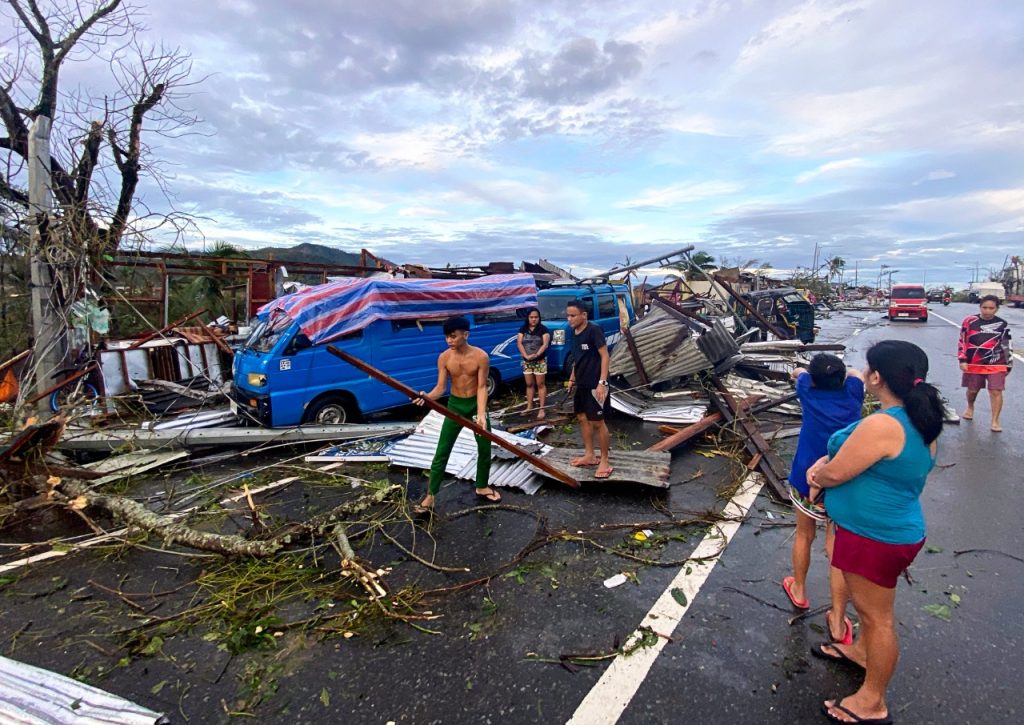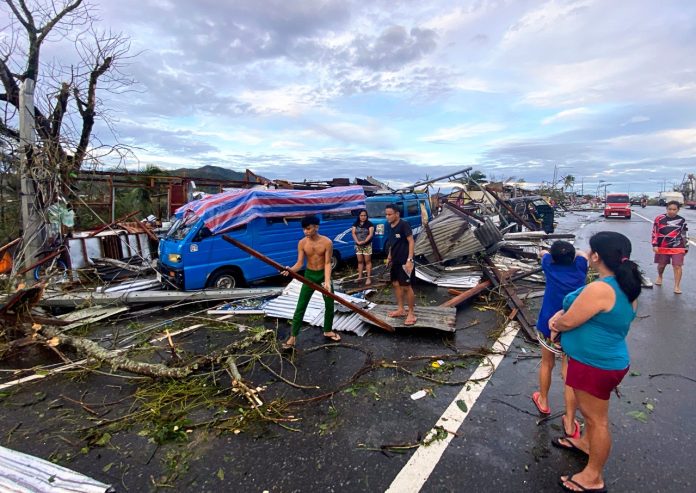We are again faced with the consequences of climate disruption — loss of lives and suffering being experienced by the people.
It happened just barely a month after the COP 26 Climate Conference in Glasgow, which many considered a failure due to the reluctance of high-polluting countries to address the need for immediate and drastic annual emission cuts.
COP 26 also failed to address the need for a formal mechanism for loss and damage compensation due to climate disasters.
In that UN conference, the Philippines also failed to submit fairly our Nationally Determined Contributions homework due to the government’s incongruities on climate change commitments.
We are now partly seeing the effects. As it surely is, the devastating impacts of typhoon Odette (Rai) is another face of climate emergency.
“We cannot imagine the devastation. It pains me to see the suffering,” said Bishop Abet Uy of the Diocese of Tagbilaran.
Where is the money?
In a country where typhoons are always devastating, disaster response is a key component for social service.
A day after the typhoon, President Rodrigo Duterte said the government’s funds “has been depleted immensely because of the COVID.” It was no assurance to disaster victims.
Our people, though, can question the government’s focus on militarization rather than on national disaster response.
On November 8, an additional five more Sikorsky S-70i Black Hawk combat utility helicopters were delivered to the Philippine Air Force, part of a government US$241 million contract for 16 helicopters that was ordered by the Duterte administration.
Recently, the presidential palace endorsed a PhP28.1-billion budget for the National Task Force to End Local Communist Armed Conflict, an agency used by the president and the military as a tool to militarize far-flung communities.
Where is our government’s money? In the pockets of the cronies and crooks of our ill-administered state. Where then are our priorities? Not the social priorities of the people, but the political priorities of the rich and the powerful.

Survival of our people
We are now days after the disaster. This is the “critical time” in disaster response when people experience scarcity of food, dearth of water supplies, absence of electricity, failure of mobile communications, and lack of coherent news reports.
The human faces of the climate emergency are our people, those who died, those who lost their homes, the ravaged towns and cities, and the added economic burden since the start of the pandemic.
“May the Santo Niño bring consolation and hope to the families in difficulty, and inspire in us the need to offer concrete help,” said Pope Francis.
Concretely, people’s solidarity assumed the neglect of the national government. The irony of it all, some of the local governments, even with limited resources, are more engaged in responding to the people’s needs compared to the national government.
Many accounts of Filipino generosity are unfolding. Individuals and groups, civic and non-government organizations, institutions and people’s organizations are building a broader alliance of Filipino solidarity.
This consolidated solidarity can be more effective if it includes a sustained campaign for climate justice.
Filipinos living in the frontlines of climate disruption must find a better way to face much more damaging typhoons.
Bro. Jaazeal Jakosalem, OAR is a Filipino Laudato Si’ reader and a member of Pusyon Kinaiyahan, an environmental group in the Visayas. He is currently based in Germany as a member of PCPR-Europe and is working for Philippine campaigns related to the protection of human rights.









